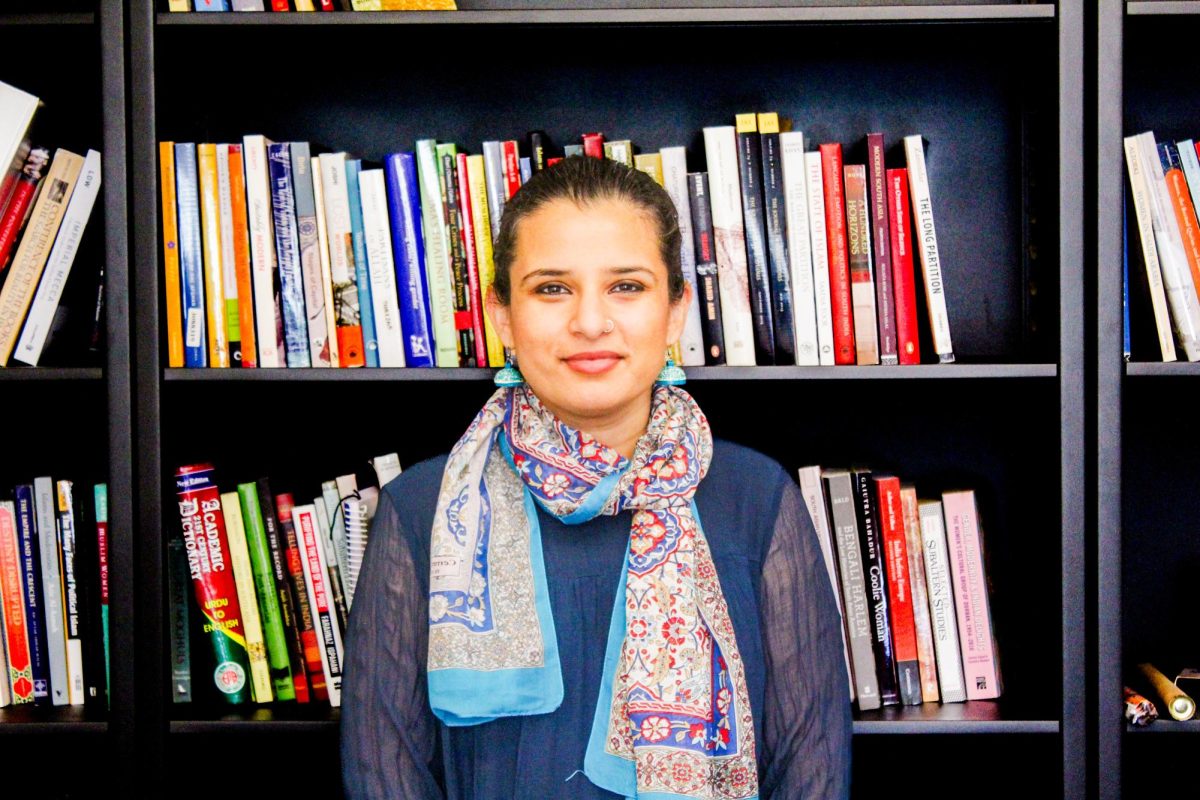In July, history professor Hafsa Kanjwal released her latest book: “Colonizing Kashmir: State-Building Under Indian Occupation,” an exploration of the tumultuous history of Kashmir since the 1947 partition of the Indian subcontinent.
Kashmir, a region of the northwestern Indian subcontinent, has been the object of constant territorial dispute between India, Pakistan and China. State-building, a process central to modern nation-states, takes center stage in Kanjwal’s analysis. In the context of Kashmir, it serves a dual purpose: to win the hearts and minds of the Kashmiri people and, concurrently, to depoliticize them, quelling demands for sovereignty and self-determination.
“Kashmir is a disputed region,” Kanjwal said. “The part of Kashmir that I look at is colonized. I basically argue that it’s colonized by India, and I look at how state-building or things like development, democracy and secularism actually work or operate to entrench India’s colonial rule in Kashmir.”
Zubair Ali ‘24, a former student of Kanjwal’s, has worked closely with her throughout the past few years. He studied the conflict in Kashmir, specifically focusing on the issues that were raised by the United Nations regarding Kashmir.
“I think the book is a great addition to the literature around Kashmir, amplifying Kashmiri voices,” Ali said. “It’s great to always have literature and books that are written from the perspectives of the people and it is really great that Professor Kanjwal is one of the first Kashmir voices for this.”
Kanjwal was born in the region of Kashmir, and due to this personal connection, she has always been motivated to learn more about its past.
“I wanted to understand what Kashmir was like before this immense militarization and the massive human rights violations that my family and I witnessed and would hear about,” Kanjwal said.
According to Kanjwal, her work sheds a spotlight on the underreported issues plaguing Kashmir, challenges India’s soft power narratives that often distort the reality on the ground and draws parallels between Kashmir’s struggle and other regions grappling with colonialism, settler colonialism, apartheid and conflict.
Kanjwal’s ultimate aim is to inspire readers to question nationalist narratives and stereotypes associated with places like India, urging them to delve into the histories from the perspective of those directly affected. Kanjwal urged individuals to grasp how colonial powers operated in Kashmir as in other regions, pointing to Palestine, Ukraine and Hawaii as places subject to similar circumstances.
“It is important to go behind all the stereotypes that regions or places around the world are known for and to really work to delve into those histories from the perspective of the people themselves,” Kanjwal said.
Kanjwal believes the situation in Kashmir is quite challenging — India’s Hindu nationalist-led government has cracked down on civil society in recent years. Kanjwal hopes to bring awareness to the political censorship and lack of free speech that she says Kashmiri people experience on a daily basis. She feels it is important for people, especially students, to have an understanding of the context behind these complex political issues.
“In Kashmir, the consequences are really high, people can get arrested,” Kanjwal said. “Oftentimes they get arrested under terrorism charges … Just speaking out against the government is seen as akin to like, quote-unquote, terrorism.”
Next week, Kanjwal will travel to the United Kingdom where she will have a schedule of book discussions. She is currently working on another book that focuses on the larger history of Kashmir and rewrites how individuals think about Kashmir’s past.


























































































































